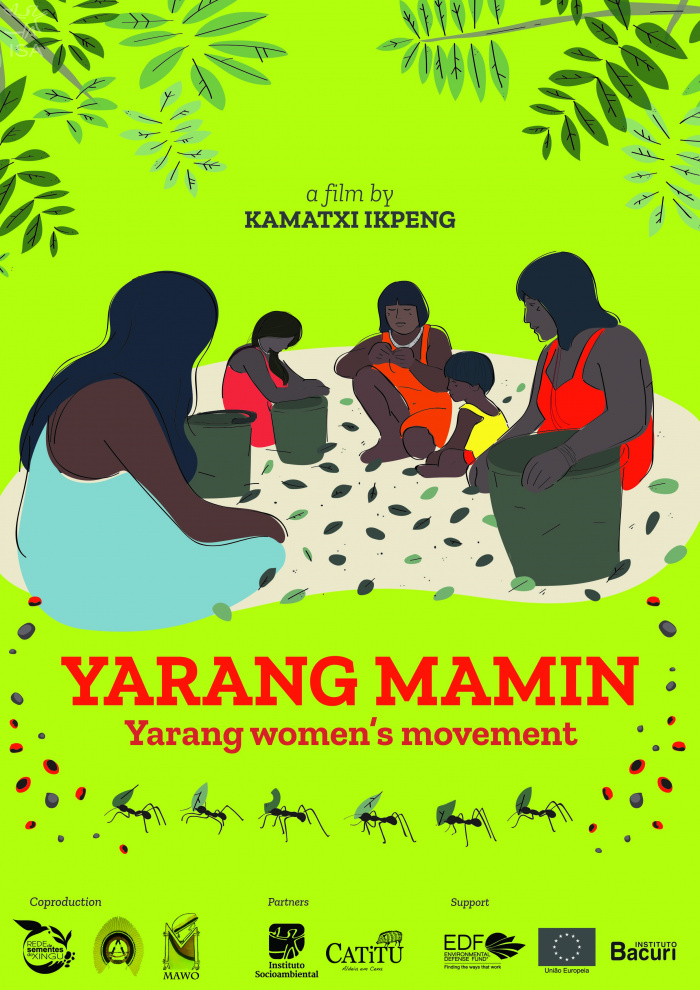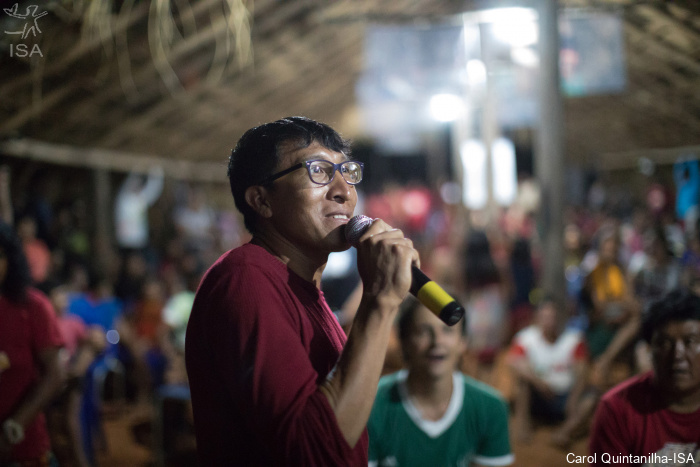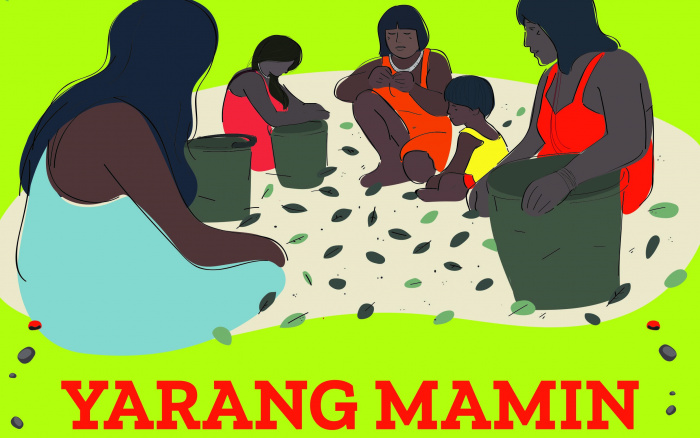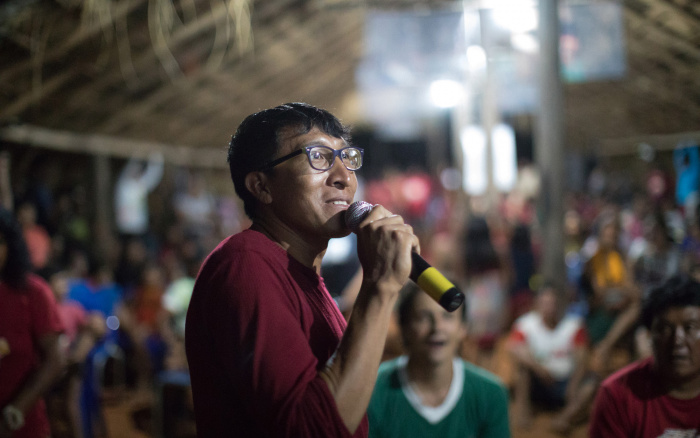Você está na versão anterior do website do ISA
Atenção
Essa é a versão antiga do site do ISA que ficou no ar até março de 2022. As informações institucionais aqui contidas podem estar desatualizadas. Acesse https://www.socioambiental.org para a versão atual.
Indigenous filmmaker depicts the work of the Yarang women to reforest the Xingu territories
quinta-feira, 02 de Julho de 2020 
Esta notícia está associada ao Programa:
Yarang Mamin, a film by Kamatxi Ikpeng, shows the day to day life of the Yarang Women's Movement, which has already resulted in 1 million trees planted in the basins of the Xingu and Araguaia Rivers

An inspiring initiative, a movement by inspiring women. Yarang Mamin, the third film by the indigenous filmmaker Kamatxi Ikpeng, is a submersion into the day to day life of the women of the Ikpeng people who collect native seeds in the Xingu Indigenous Territories (MT).
"Our name Yarang comes from the leafcutter ant because they walk together, one behind the other, each one with their seed or leaf on their back. When we work, we do the same," explained Magaró Ikpeng.
The work of Magaró and the Yarang Women's Movement, which exists for 10 years now and is a part of the Xingu Seeds Network Association (ARSX), is a breath of fresh air in the middle of the ongoing devastation with what is left of the forest.
There are more than 22,500 water springs in the headwaters of the Xingu River. Approximately 150,000 hectares of riverbank bush are damaged. Over one decade, the Yarang Women's Movement collected 3.2 tons of forest seeds for the planting of about 1 million trees.
The desires, conquests, and calls for unity from the women are present in the medium-length feature by Kamatxi produced by the Xingu Seed Network Association and by the Indigenous Moygu Ikpeng Community Association, and executed by Instituto Socioambiental in partnership with the Instituto Catitu.
"My son, I really like the work that I do, do you know why? Because it is helping the forest grow back, the bush that grows on the edges of the rivers too," said Makawa Ikpeng.
Click below to watch!
About Kamatxi Ikpeng
Kamatxi was born in 1988 in the Moygu village, in the Xingu Indigenous Territory. As a boy, he was featured in the documentary Marangmotxingmo Mïrang (From the Ikpeng Children to the World) by Karané, Kumaré and Natuyu, a video-essay in which four Ikpeng children show their day-to-day life in response to children from Sierra Maestra in Cuba.
At that time Kamatxi never even dreamed of working with film, but his curiosity and enchantment with the work of the indigenous filmmakers eventually brought him to develop a serious interest in working with the camera. In 2008, he asked Karané to teach him and started his first films recording parties, events, and rituals of his people.

With the creation of Mawo - Ikpeng House of Culture in the same year, Kamatxi joined the audiovisual staff and became a filmmaker. Since then he has not stopped. He has worked as a co-producer and cameraman for the documentary Tximna Yukunang Som (Recording Sound), and as an audio technician for the recording of Yumpuno Eremrï (Songs of Yumpuno), a video and CD about the tattoo ritual which is a part of the initiation rite for Ikpeng children.
In 2014 he participated as staff member and editor of the documentary on the Mawo children, Project Mawo – Ikpeng House of Culture, about the experience of creating in their community a center for documentation and audiovisual production about their people's culture.
In 2019 Kamatxi received a grant to participate in an audiovisual training workshop in Cuba, on TV Serrana, in Sierra Maestra itself, exactly the same place where the video-essay was recorded, which requested a film-response by the Ikpeng, in which Kamatxi played a major role. There, Kamatxi worked on the documentary My Grandfather's Gift. Yarang Mamim is his third film as director. Kamatxi is married to Reko and has four children: Pirete, Panpo, Aprakpe, and Yamulauwa.
To know more about the Ikpeng people visit the Ikpeng website.
Technical file:
Title: Yarang Mamin: Yarang Women's Movement
Direction: Kamatxi Ikpeng
Production year: 2019
Duration: 21 minutes
Genre: Documentary
Country of origin: Brazil
Synopsis
In the Xingu Indigenous Territory, in Mato Grosso, the indigenous filmmaker Kamatxi Ikpeng documented the history of a group of women from his people, the Ikpeng, who developed a movement to collect forest seeds and restore the water springs of the Xingu River, which flows through their villages. With images from the day to day work done by the Yarang Women's Movement, the medium-length feature presents the desires and conquests of the group, which has already helped plant around 1 million trees, eventually becoming future forests.
Roberto Almeida, translation by Helena Lopes
ISA
Imagens:






